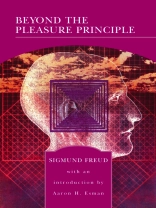‘Beyond the Pleasure Principle’ marks a major turning point in the evolution of Sigmund Freuds psychoanalytic thought. It is at once richly complex, daringly conceptual, and highly controversial. It leads Freud to a restatement of his theory of consciousness and of the ‘topography’ of the human mind. At the same time, it provides a charming glimpse of an intimate family experience with his grandson, supporting the formulation of his new concept of the ‘compulsion to repeat’ which became the basis for his radical revision of what he termed his ‘metapsychology’-the ‘scientific’ foundation for his clinical theory.
Sobre o autor
Sigmund Freud was born in 1856 and grew up in Vienna. He began developing the theory and technique of psychoanalysis when he undertook the study and treatment of patients with neurological and emotional disorders. A master of German prose style and a winner of the Goethe Prize, Freud is the author of
Interpretation of Dreams, Three Essays in the Theory of Sexuality, The Psychopathology of Everyday Life, and
Jokes and Their Relation to the Unconscious. He moved to London in 1938 to escape the persecution of the Nazis, and died the following year, widely celebrated as the founder of the international psychoanalytic movement.












